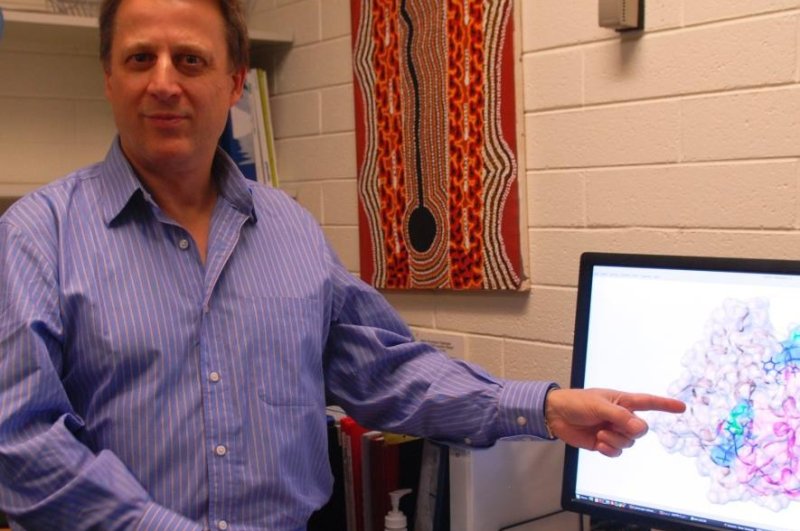Dr. Nikolai Petrovsky shows a 3D protein model used in the development of a possible vaccine to prevent, as well as treat, Alzheimer’s disease. Photo by Flinders University
ADELAIDE, Australia, July 14 (UPI) -- Rather than worrying about a reliable test for Alzheimer's disease, people could be receiving a vaccine within a decade to prevent it altogether, according to researchers working on its development.
A vaccine targeting the formation of proteins in the brain causing the most common form of dementia could be on the way, with researchers at Flinders University and the University of California Irvine planning pre-clinical safety tests for it now.
The formation of β-amyloid and pathological tau proteins in the brain has been linked to the development of Alzheimer's disease. Although a recent study suggests an eye exam could allow doctors to diagnose it before symptoms are apparent, the disease cannot be confirmed in patients without examining a brain sample.
There are about 7.5 million new cases of Alzheimer's disease diagnosed each year worldwide, and more than 48 million patients, making its potential prevention a significant development.
"This study suggests that we can immunise patients at the early stages of Alzheimer's disease, or even healthy people at risk for Alzheimer's disease, using our anti-amyloid-beta vaccine, and, if the disease progresses, then vaccinate with another anti-tau vaccine to increase effectiveness," Anahit Ghochikyan, an associate professor of molecular immunology, said in a press release.
For the study, published in the journal Scientific Reports, researchers found the vaccine reduced development of the proteins in mice.
Based on the results, the researchers say the vaccine could be used for both prevention and treatment of Alzheimer's disease.
Researchers at Flinders and UCI are planning to conduct non-clinical safety studies in advance of an application to the U.S. Food and Drug Administration to start human trials to test the vaccine's efficacy.
"If we are successful in pre-clinical trials, in three to five years we could be well on the way to one of the most important developments in recent medical history," said Dr. Nikolai Petrovsky, a professor of medicine at Flinders University.















